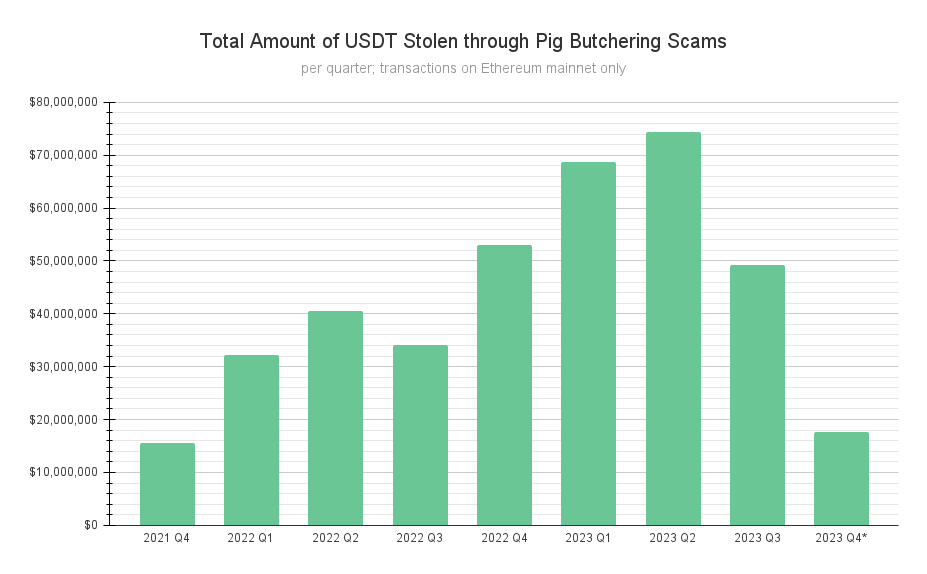Pig Butchering (known as Sha Zhu Pans) has been widely reported as a scam scheme in 2019, mainly targeting Chinese men in dating apps. However, with the rising popularity of cryptocurrencies, the scammers quickly expanded their horizons.
Back in October 2022, the Thai police detained one of the most well-known scam leaders, the Chinese businessman Wang Yicheng, but scams continued to surge in the crypto world despite his arrest.
The team at BestBrokers decided to measure the magnitude of the most “easily trackable” scams. We ran several raw queries on the Dune Analytics platform to determine the amount of USDT transactions made to known scam addresses on the Ethereum mainnet.

While the first reported transaction was made in September 2021, the number of reported scams kept surging throughout the last two years, with the first notable decline being observed in Q3 2023. This downturn could be attributed to the sustained efforts of Southeast Asia’s governments to crack down on the scammers. China alone reported conducting several police operations against cyber criminals in 2023.
“The fact that over 385 million USDT was stolen through Pig Butchering scams over such a short period is terrifying. Let’s not forget this is the data for a single cryptocurrency on a single blockchain. If we were able to track all the scam transactions across all blockchains, the magnitude would be way larger. It may even match the amount siphoned by the DeFi hackers.”
– comments BestBrokers analyst Alan Goldberg.
We also stumbled upon @tayvano’s dashboard which not only gives detailed information and breakdown queries, but also provides explanations of how the whole scheme works. Its introduction starts with the slogan “These scammers are onboarding more people to crypto than any legitimate crypto organisation. All in order to steal their money.” This is certainly within the bounds of possibility when we extrapolate the data for one cryptocurrency on a single blockchain. Additionally, some manuals that leaked on Reddit that are not directly focused on crypto scams provide insights as to why these schemes are so effective.
“The entire Southeast Asia is working hard to crack down on cyber crimes, but the numbers still look scary as hundreds of people fall victim on a daily basis. What is more worrying, such scams can occur with all types of crypto, even at a time when most reputable exchanges work with KYC and check their clients.”
– adds Alan.